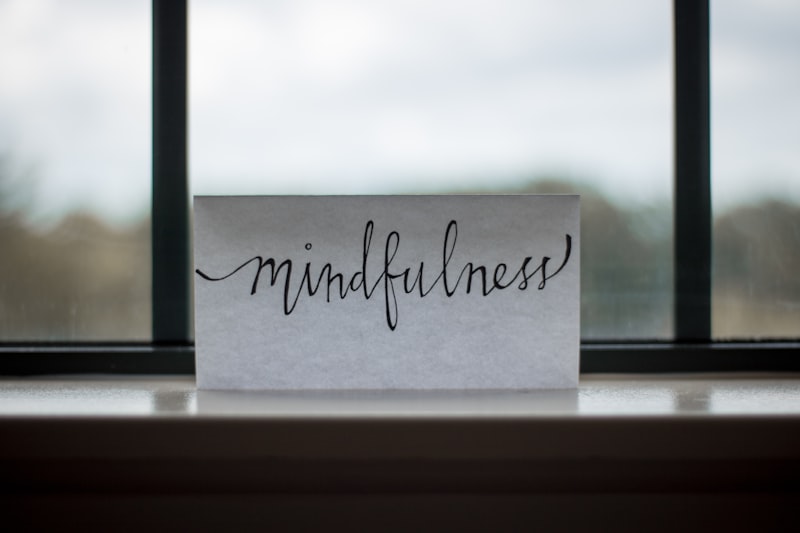As we age, our bodies go through various shifts. For many, this includes changes in sexual health that might seem surprising at first. For instance, hormones play a big role in sexual desire and performance. In men, testosterone levels gradually decline over time, which can lead to reduced libido or difficulty achieving and maintaining an erection. It’s a bit like a dimmer switch on a light; things aren’t as bright as they used to be, but there are still ways to adjust and enjoy.
For women, menopause marks a significant shift. Estrogen levels drop, which can lead to vaginal dryness and discomfort during sex. Think of it as a garden that needs a little extra care; just as plants need water to flourish, women might need additional lubrication and a bit of patience.
But it’s not all doom and gloom. Many older adults continue to have fulfilling and satisfying sexual lives. It’s all about adapting and finding what works best for you. Communication with your partner becomes even more crucial; it’s like updating the terms of a long-term contract to reflect the new realities.

Also, let’s not forget that sexual health isn’t just about physical changes. Emotional well-being and mental health are key. Aging can bring about anxiety or changes in self-esteem, which can affect your sexual life. Staying active, maintaining a positive outlook, and seeking support can make a big difference.
So, while aging does bring changes to sexual health, it also opens doors to new ways of connecting and enjoying intimacy. It’s a matter of adjusting your expectations and embracing the journey.
Aging and Intimacy: How Time Shapes Our Sexual Health
As we journey through life, our bodies and minds change, which impacts our sexual health. Think of it like a car that’s been driven for decades. Just as a classic car requires some tuning to run smoothly, our bodies need adjustments too. Hormonal shifts, such as a decrease in estrogen for women or testosterone for men, are significant players here. These changes can affect everything from libido to the ease of physical intimacy.
But it’s not just about physical changes. Emotional and psychological aspects also play a crucial role. As we grow older, our perspectives often deepen, bringing a richer understanding of what intimacy means. It becomes less about physical prowess and more about connection, trust, and shared experiences. Isn’t it fascinating how this shift mirrors a deeper, more profound approach to life itself?
For many, this evolution leads to a renewed appreciation for intimacy. It’s about embracing new ways of connecting, communicating, and exploring. Maybe it’s taking the time to talk more deeply or trying new experiences together. It’s like discovering a new layer to an old favorite song—one you’ve heard a thousand times but now find a fresh meaning in.
Navigating these changes can sometimes be challenging, but it also opens up opportunities for growth and rediscovery. Embracing these shifts with curiosity rather than resistance can lead to a richer, more fulfilling intimate life as we age. So, rather than seeing aging as a hurdle, think of it as an invitation to reinvent and deepen the ways you connect with your partner.
From Youth to Senior Years: Navigating the Changes in Sexual Health with Age
Hormonal changes play a big role. For example, women may experience menopause, which brings about a decrease in estrogen levels, affecting everything from lubrication to libido. Men, on the other hand, might see a gradual decline in testosterone, which can impact both performance and desire. These changes are natural but navigating them can be challenging.
It’s not just about the physical aspects; emotional and psychological changes are significant too. Aging often brings wisdom and a deeper understanding of intimacy, which can enrich relationships. However, the loss of a partner or health issues can create emotional hurdles that affect sexual well-being.
Communication becomes crucial as you age. Being open with your partner about your changing needs and concerns can help maintain a satisfying and fulfilling sex life. Exploring new ways to connect, whether through different types of intimacy or adjusting expectations, can be both fulfilling and empowering.
So, how do you adapt and thrive through these stages? It’s all about embracing the changes with a positive mindset and seeking support when needed. Whether it’s through medical advice or open conversations with your partner, staying proactive and informed is key to navigating sexual health changes gracefully and confidently.
The Aging Process: What It Means for Your Sex Life and How to Adapt
First off, let’s talk about hormonal shifts. As we age, levels of sex hormones like estrogen and testosterone naturally decrease. For women, this can lead to vaginal dryness and reduced libido, while men might experience erectile dysfunction or a lower sex drive. It’s like driving a car that’s running out of fuel—performance can become inconsistent. But just as you’d fill up your gas tank, there are ways to replenish what’s lost.
For women, using water-based lubricants can be a game changer. They help with dryness and can make intimacy more comfortable and enjoyable. Hormone replacement therapy is another option worth discussing with your healthcare provider, as it might help balance hormone levels and alleviate some symptoms.
Men, on the other hand, might find that incorporating pelvic exercises, like Kegels, can improve erectile function by strengthening the pelvic floor muscles. Additionally, maintaining a healthy lifestyle with regular exercise and a balanced diet can make a significant difference. Think of it as tuning up your car—regular maintenance keeps everything running smoothly.
Emotional and psychological factors also come into play. Stress, anxiety, and self-image issues can affect your desire and performance. Open communication with your partner about these feelings can create a supportive environment where both of you feel understood and connected. It’s like having a co-pilot in your journey—sharing the load makes the ride more enjoyable.
Adapting to these changes doesn’t mean your sex life is over; it’s simply about finding new ways to connect and enjoy each other. Embrace the changes and explore new approaches to intimacy—you might just discover new pleasures along the way.
Breaking Taboos: Open Conversations About Sexual Health and Aging
The reality is, sexual health doesn’t hit a pause button with age. In fact, staying open about it can lead to a more fulfilling and confident life. Think of it as maintaining a car; just because it’s getting older doesn’t mean it’s not worth checking in on regularly. Our sexual health deserves the same attention.
Why should we be more open about these conversations? For starters, it’s empowering. When we talk about issues like libido changes, physical discomfort, or emotional shifts openly, we pave the way for better solutions and more personalized care. It’s akin to having a friendly chat with a mechanic who understands exactly what’s going on under the hood.
Additionally, tackling these subjects can help dispel myths and reduce stigma. For example, many people believe that aging automatically means a decrease in sexual desire or satisfaction, but that’s not always the case. Just like with any aspect of health, everyone’s experience is unique. Sharing our stories can illuminate these differences and help us all navigate them more effectively.
Opening up about sexual health as we age isn’t just about tackling problems; it’s about embracing life fully and openly. It’s about breaking the silence that can cloud our understanding and making room for richer, more informed conversations that enhance our well-being.
Senior Sex: Exploring the Benefits and Challenges of Aging on Intimacy

For starters, older adults often experience a deepened emotional connection. With years of shared experiences and mutual understanding, intimacy in later years can be more about quality than quantity. Many couples find their bond strengthening, allowing for more meaningful and fulfilling experiences. It’s like having a best friend with whom you share a deeply personal and loving connection, where every moment counts.
However, aging also brings its own set of hurdles. Physical changes, like reduced libido or discomfort, can impact sexual activity. Think of it as a car that’s been through many road trips; it might need a bit more maintenance. But this doesn’t mean intimacy has to take a backseat. There are numerous ways to navigate these changes, from open communication with your partner to exploring different forms of intimacy that go beyond the conventional.
Health issues, medications, and energy levels can also play a role in how intimacy evolves. It’s like adjusting to a new rhythm in a dance you’ve been performing for years. Embracing these changes with a positive attitude can lead to new discoveries and ways to connect.
So, while the path of intimacy may shift with age, it holds the potential for rich, rewarding experiences. Embracing this journey can lead to a new kind of closeness that celebrates both the past and the present.
Frequently Asked Questions
How Does Aging Affect Sexual Desire
As people age, changes in hormone levels, physical health, and psychological factors can influence sexual desire. Decreased libido may result from reduced testosterone or estrogen, health conditions, medications, and altered self-image. Understanding these changes can help in addressing and managing shifts in sexual interest.
What Are Common Sexual Health Changes in Older Adults
As adults age, sexual health can be affected by changes such as decreased libido, slower arousal, and longer recovery times. Women may experience vaginal dryness and hormonal changes, while men might face erectile dysfunction. Communication and medical consultation can help manage these changes effectively.
Can Older Adults Still Enjoy a Healthy Sex Life
Older adults can maintain a healthy sex life by focusing on communication, intimacy, and understanding their own physical changes. Regular health check-ups and addressing any medical conditions can also contribute to a fulfilling sexual experience.
What Treatments Are Available for Sexual Health Issues in Seniors
Treatment options for sexual health issues in seniors include medications for erectile dysfunction, hormone replacement therapy, counseling for psychological concerns, and lifestyle changes such as improved diet and exercise. Medical professionals can tailor these treatments based on individual needs and health conditions.
How Can Couples Maintain Intimacy as They Age
As couples age, maintaining intimacy involves focusing on emotional connection, open communication, and shared experiences. Regularly engaging in activities together, expressing affection, and adapting to each other’s needs can help preserve a strong, loving relationship.


